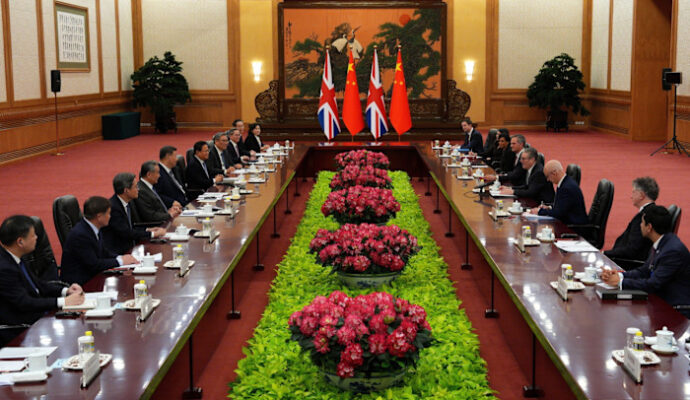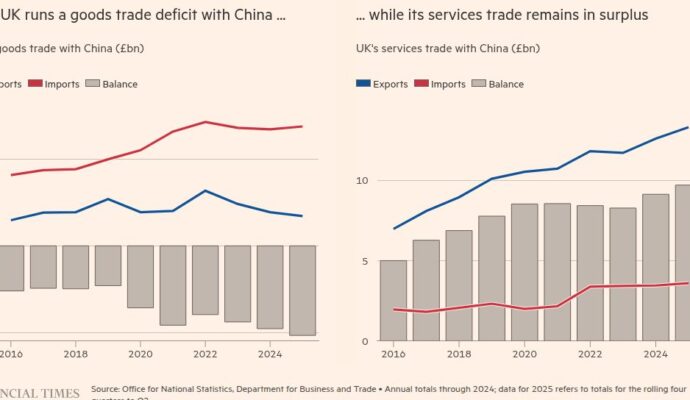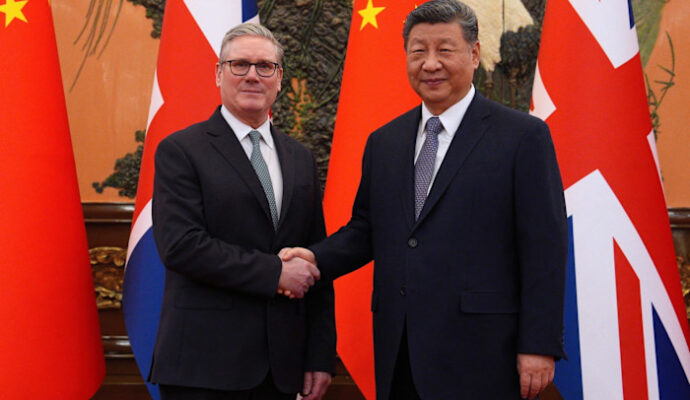Taiwan will have to open its wallet much wider if it wants to keep its last remaining ally in South America from switching diplomatic relations to Beijing, said the main opposition candidate in Paraguay’s election.
Efraín Alegre, whose broad centre-left alliance is leading in some polls before Sunday’s ballot to elect a president, lawmakers and state governors, said Paraguay was losing out economically from its current relationship with Taiwan.
“We don’t see that Taiwan is making the same sacrifices that Paraguay is making,” Alegre told the Financial Times in a video interview from Asunción. “We’re not saying that we necessarily have to have relations with China but . . . we can’t ignore our national interests.”
A landlocked country with a population of 7mn people, Paraguay is the fourth-biggest exporter of soyabeans and the eighth-largest seller of beef. Its powerful farming lobby has complained for years that recognition of Taiwan rather than China is costing billions of dollars in export revenue. Neighbouring Brazil and Argentina, both leading soyabean and beef producers, have long had diplomatic ties with Beijing.
Taiwan needed “to compensate the opportunities which Paraguay is missing”, Alegre said. “We’re not going to talk about amounts . . . we’ll just say that today, Taiwan’s commitments are small [and] we think there’s a lot more which can be done and which they are able to do.”
Latin America used to account for many of Taiwan’s diplomatic allies, but China has been steadily whittling them away with promises of increased trade and investment. Panama, the Dominican Republic, El Salvador, Nicaragua and Honduras have all switched allegiance in recent years.
Paraguay’s close alliance with Taiwan dates to the 1954-89 dictatorship of General Alfredo Stroessner, who admired the Taiwanese autocrat and fellow anti-communist, General Chiang Kai-shek.
Alegre, a lawyer making his third bid for the presidency, said earlier this year he would cut ties with Taiwan if elected. However, he insisted that no final decision had been taken and Taipei could still negotiate a new bilateral relationship if he becomes president.
Paraguay’s current president, Mario Abdo Benítez, has backed Taiwan but told the FT last year that Taipei should invest $1bn to help him resist pressure for a switch.
Alegre said he would not increase taxes if elected, preferring to focus on fighting corruption and improving the efficiency of public spending. He would also use Paraguay’s surplus share of electricity from the giant Itaipu hydroelectric dam to boost economic development and cut domestic electricity prices and would improve legal security for investors.
Polls in Paraguay conducted by Brazilian pollster Atlas between April 20-24 gave Alegre a narrow lead over Santiago Peña of the ruling Colorado party. Both candidates were losing ground to a third-placed challenger, the populist Paraguayo Cubas. A single round of voting means that the winner on Sunday is elected president.
Alegre hopes to capitalise on a split within the ranks of the long-ruling rightwing Colorado party, which has governed Paraguay since 1948, apart from a brief interlude from 2008-12.
Former Paraguayan president and Colorado party leader Horacio Cartes was sanctioned by the US in January for “rampant corruption” before, during and after his rule, and for ties to Lebanese Islamist group Hizbollah. This triggered a backlash against his protégé Peña, who was Cartes’s former finance minister. Abdo, the current president, has also broken ranks with Cartes.
Alegre said some Colorado leaders unhappy with Cartes’s hold over the party were backing his campaign. “Our plan and the challenge we have as a country is to defeat the dirty money of organised crime,” he said. “The Colorado party has been taken hostage by a group which is compromised internationally [and] declared significantly corrupt, [that of] ex-president Cartes.”
The US state department said Cartes had bribed legislators for years to win their support, paying them up to $50,000 a month. The Atlas poll found that corruption was the biggest election issue for voters.
Law enforcement officials say Paraguay has become a significant conduit for cocaine shipments to Europe and drug-related violence has soared. Assassins shot dead a top Paraguayan anti-mafia prosecutor, Marcelo Pecci, during his honeymoon on a Caribbean beach in Colombia last May.
Alegre said he had received threats but would be committed as president to rooting out corruption in the judiciary and parliament. “The real Paraguay is decent people . . . honest people”, he said. “We are not going to give in and on April 30 we are going to defeat this mafia which has encrusted itself in power.”


